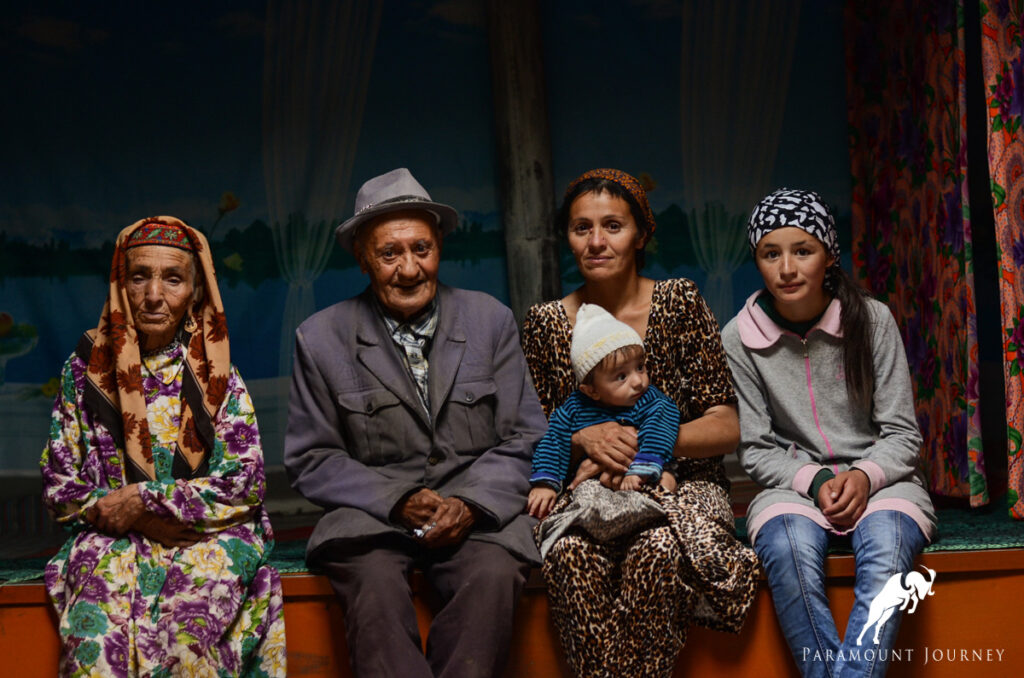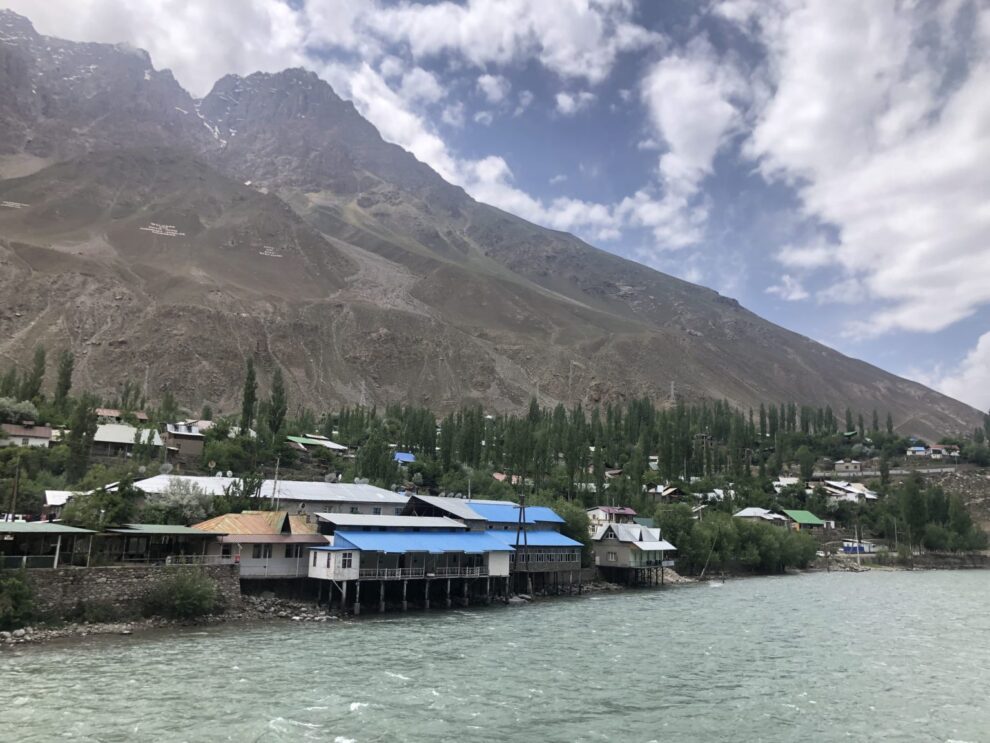The Tajikistani authorities are perpetuating systemic discrimination and severe human rights violations against the Pamiri minority, according to new research by Amnesty International. The Gorno-Badakhshan Autonomous Oblast (GBAO) in East Tajikistan is home to several ethnic groups forming the Pamiri minority, mostly practicing the Shia Ismaili branch of Islam. Denied official recognition as a minority and regarded as ethnic Tajiks by the central authorities, Pamiris face systemic discrimination, suppression of cultural and religious institutions, political oppression, and brutal reprisals for defending their rights.
“The ongoing persecution and human rights violations against the Pamiri minority in Tajikistan reached an alarming scale years ago. But there is almost no one to ring the alarm bell. The Tajikistani authorities stifle virtually all information from the region, while the international community has largely overlooked this serious human rights crisis. It demands immediate attention and action from the international community to safeguard the rights and dignity of the Pamiri people,” said Marie Struthers, Amnesty International’s Director for Eastern Europe and Central Asia.

The ongoing persecution and human rights violations against the Pamiri minority in Tajikistan reached an alarming scale years ago. But there is almost no one to ring the alarm bell
Marie Struthers, Amnesty International’s Director for Eastern Europe and Central Asia
Tajikistan: Reprisals against Pamiri minority, suppression of local identity, clampdown on all dissent highlights the violations of economic, social and cultural rights resulting from: the crackdown on Pamiri languages, cultural practices, and identities; the heavy presence of security forces from other regions of Tajikistan; violent repression of protest and widespread arbitrary detention; and socioeconomic marginalization faced by the Pamiri Ismaili community in Gorno-Badakhshan.
Discrimination and securitization
The central authorities have promoted a culture of prejudice against Pamiris. A state-sponsored narrative depicts them negatively, particularly Ismailis, leading to widespread discrimination. This policy manifests in repressive practices, including suppressing the use of Pamiri languages in media, education, and public life, excluding Pamiris from influential positions within the state administration and security apparatus, and extortion and destruction of local employment opportunities and Pamiri businesses.
The heavy presence of security forces from other parts of Tajikistan reflects the authorities’ contempt for the Gorno-Badakhshan population. “The word ‘Pamiri’ [for the security forces] means […] separatist, oppositionist, main enemy,” said one of the interviewees.
The presence of security agencies, including the Ministry of Internal Affairs (MIA) and the State Committee for National Security (SCNS), has significantly increased in GBAO. Security forces have set up armed cordons on roads and in city squares, including the capital city of GBAO, Khorugh, patrolled by heavily armed police and military. “The security forces in Khorugh behave like wolves looking after sheep. ‘You should not walk like this; you should not laugh!’” said one of the interviewees.
Security operations in GBAO include surveillance, intimidation, and the excessive use of force — often justified as combating terrorism and organized crime — accompanied by arbitrary arrests and prosecutions of local informal leaders and ordinary Pamiris, despite a lack of credible evidence.
“The heavy-handed securitization in Gorno-Badakhshan is beyond any scrutiny. The local population is perceived as hostile by the central government, and people are harassed and discriminated against on a daily basis,” said Marie Struthers.
The heavy-handed securitization in Gorno-Badakhshan is beyond any scrutiny. The local population is perceived as hostile by the central government, and people are harassed and discriminated against on a daily basis
Marie Struthers, Amnesty International’s Director for Eastern Europe and Central Asia
2021-2022 crackdown and its aftermath
Mounting tensions erupted after the killing of prominent Pamiri figure Gulbiddin Ziyobekov in November 2021. Officially described as the result of a shootout with law enforcement, evidence points to an unlawful killing of an unarmed man, which may amount to an extrajudicial execution. In response to a four-day protest in Khorugh, security forces used firearms against a crowd that had been peaceful until that point, killing two protesters and allegedly injuring around a dozen.
“We escorted the women away […] to a safer location. At that time, a bullet hit me. They were shooting from the entrance of the building, wearing uniforms. Some of them were standing directly in the entrance, some of them were on the second or third floor,” said one protester, describing the indiscriminate use of lethal force by law enforcement officials.
After false promises to effectively investigate, the authorities instead persecuted informal community leaders, harassed civil society, and intimidated and prosecuted ordinary Pamiris.
A second outbreak of violence occurred in May 2022 when authorities violently dispersed peaceful protests in Khorugh and Rushan, resulting in the deaths of dozens of Pamiris, including informal leader Mamadbokir Mamadbokirov, shot by unidentified gunmen in a pickup — a likely extrajudicial execution. According to independent reports, 24 civilians died, some during the crackdown and some in alleged retaliatory unlawful killings.
A subsequent crackdown on civil society followed with the arbitrary detention of more than 200 human rights defenders, dissenters, and influential figures such as journalist and activist Ulfatkhonim Mamadshoeva and lawyers Faromuz Irgashev and Manuchehr Kholiknazarov. In December 2023, they received 21, 29 and 15-year sentences respectively, in secret trials, with the details of the charges made public only six months later.
Arbitrary detentions and torture
The Tajikistani authorities routinely arbitrarily detain, allegedly torture, and engage in other ill-treatment of Pamiris, with reports of coerced confessions and fabricated charges of crimes against “public safety,” “fundamentals of the constitutional order” or “order of administration.” Legal proceedings lack transparency and due process, with many trials lasting only a few days. During the 2021-2022 crackdown, reports of torture and other ill-treatment were common.
One of the detainees in the aftermath of the May 2022 protests said he was deprived of sleep for two days, beaten with fists and batons and hit on the head with a thick book.
“When they asked and I did not answer, they wrapped wet tissues around my fingers, then [fixed it with] tape. They put clips and switched something on. The [electric] current was strong. They did it with different fingers. They did it twice every day, four times in all,” he said.
The international community must urgently raise concerns about the human rights violations faced by Pamiris with the Tajikistani authorities
Marie Struthers, Amnesty International’s Director for Eastern Europe and Central Asia
“After the 2021-2022 protests in Gorno-Badakhshan, the systemic discrimination against the Pamiri community has become ever more entrenched, resulting in fear, harassment and violation of human rights. The international community must urgently raise concerns about the human rights violations faced by Pamiris with the Tajikistani authorities, in all possible fora not the least international fora, stand in solidarity with the Pamiri people, give protection to those who seek it abroad, and take decisive action to oppose this vicious system in Tajikistan,” said Marie Struthers.










